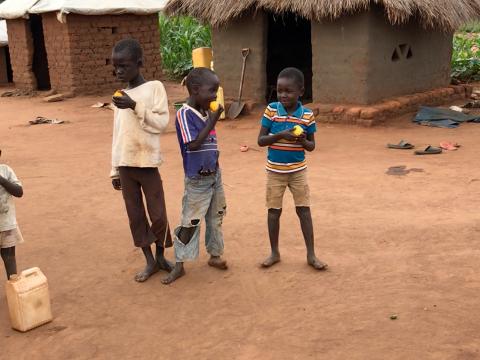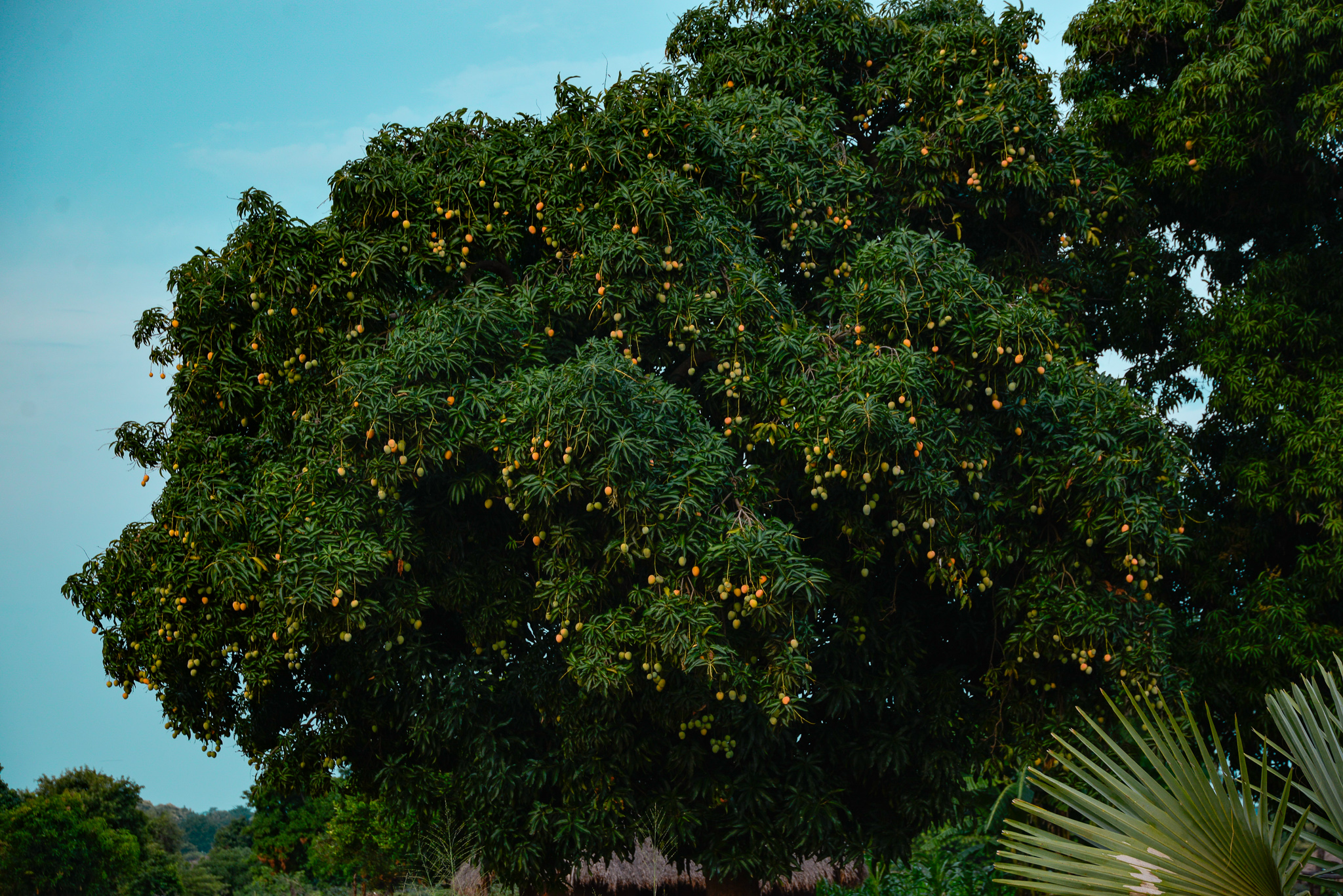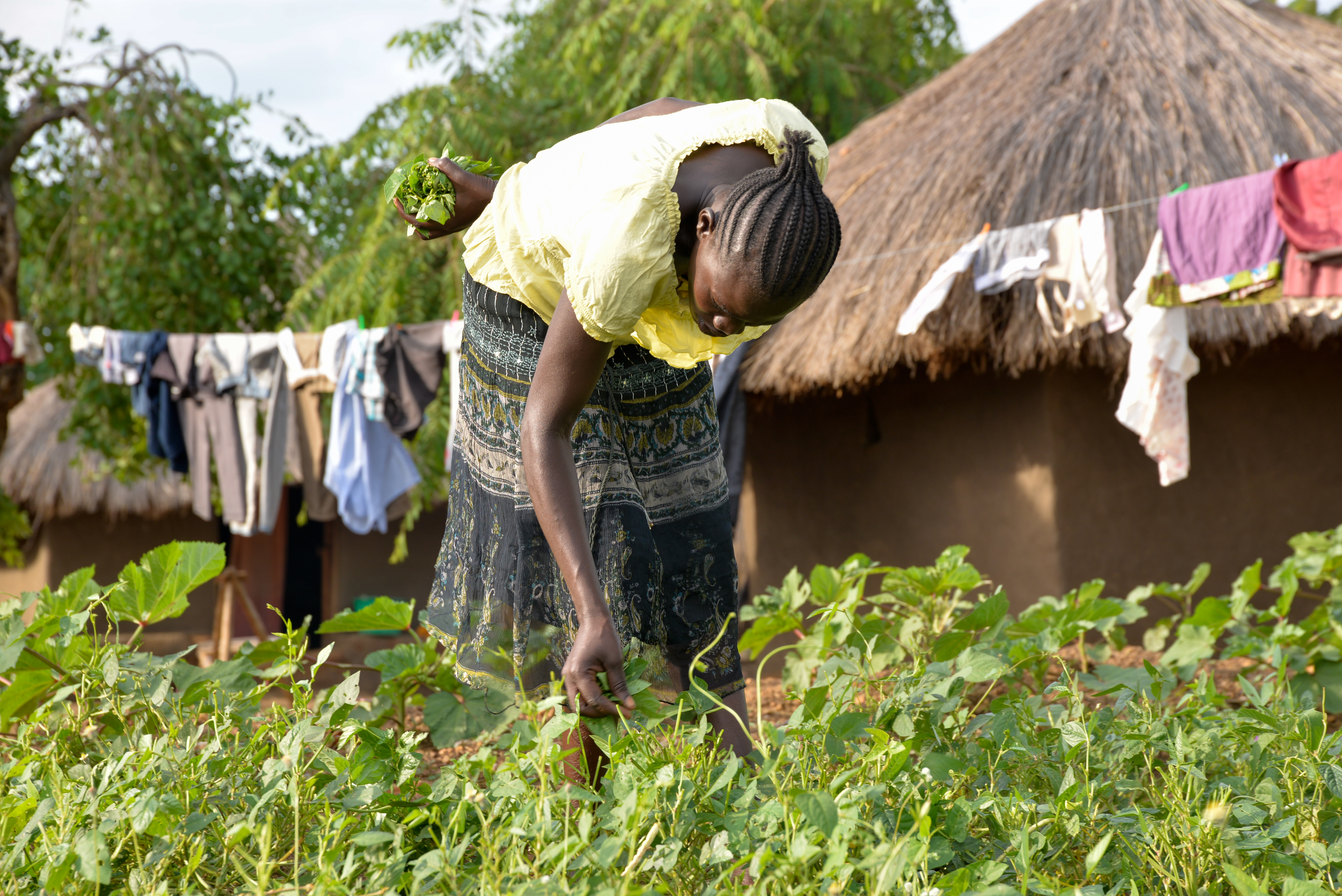Refugees in Bidibidi turn to mangoes as 30% cut on food ration bites

By Aggrey Nyondwa & Derrick Kyatuka, Communication Officials, World Vision Uganda
On a sunny June day near Yoyo Village in Bidibidi Refugee Settlement, children in groups of three and five hurl stones and sticks at the mangoes on the trees by the roadside. The trees are laden with ripe mangoes, a delectable sight to many refugees.
It is mango harvest season in West Nile. Almost every household has at least one mango tree in the compound, primarily for the nutritious fruit, but also for its evergreen canopy that provides shade from the scorching sun.

The mango season this year could not have come at a better time.
In April 2020, World Food Programme (WFP) announced that there would be a reduction in the food ration for all refugees in Uganda. The ration would be cut from 12kg to 8kg.
Many refugees who were already struggling with the effects of the COVID-19, turned to the mangoes to supplement their diet. Unfortunately, unlike the host communities, the refugees do not have mango trees of their own. The effects of the lockdown, however, have not spared the host community either, who eat the mangoes as well as sell them to earn an income. The “fight for mangoes” has created friction between the refugees and some members of the host community.
“We have resorted to mangoes now because the food has reduced and it is hard these days to get anything else to eat. Some nationals have allowed us to pick from their trees while others have chased us,” says David Arike, a South Sudanese refugee.
Swayib Khalifani, a resident of Jomorogo village is one of those who have allowed the refugees, especially children, to pick mangoes from his compound every day.
“They are our brothers and sisters. They need to eat because the food they get now is not enough,” he says.
“We are also facing challenges with food and income now because of the lockdown, but I believe if I continue helping these people, God will reward me,” Swayib adds.
Residents like Swayib usually harvest mangoes primarily for business, selling a basin of mangoes at UGX2,000 (54 US cents), but people have no money and since movement is limited, it is hard to sell mangoes by the road side when there are no customers.
“People are few in the markets and many people have no money. Instead of keeping these mangoes and letting them go to waste, I would rather share with the refugees who need them badly,” Swayib says.
According to BBC good food, mangoes are one of the highest sources of Vitamin A and C, essential for the immune system. However, Dr. Philip Besigye, a nutritionist, says mangoes are good but not as a main meal, especially for someone who might not have enough body building foods in their diet.
“Mangoes are rich in fibre, vitamins and minerals. They might not help much in the production of blood because they lack proteins, hence not body building,” Dr. Philip says.
“It would be better for them (the refugees) to eat the mangoes for dinner before sleeping because that time, the body doesn’t require a lot of energy, as opposed to during day,” he adds.
Rationale behind the food ration cuts
The dwindling funding in the humanitarian sector has affected WFP and its partners delivering food to over 1.4 million refugees and asylum seekers in Uganda. The humanitarian organisation warned that further cuts could follow if the funding gap is not filled soon.
WFP is struggling with a shortfall of USD 137 million in funding against USD 219 million it needs for the refugee response in Uganda for the year 2020. This poses a serious humanitarian crisis for 1.4 million refugees, who are also battling the fear of the COVID-19 pandemic.
In Bidibidi Refugee Settlement, World Vision working with WFP, distributes food relief to about 232,000 refugees every month.
The WFP deputy country representative, Ryan Anderson, notes that the ration cuts were not COVID-19 related.
“The ration cuts were planned in early March. We gave two months of food assistance instead of one. There is massive need of investment in economic stimulus but this is challenging because of limited funding,” Ryan says.
How refugees are coping
Aba Asenata, 69, a South Sudanese refugee, says the food is not enough to support her family of four.
“I stay with three of my grandchildren. It will be hard for the food to sustain us for the next one month. The only way we are going to manage is by eating once a day. We eat porridge in the morning, skip lunch, or the children can run around and find mangoes, then we will eat food at dinner,” she says.
“Before the reduction, we used to sell part of the food to meet some basic needs like medical care, buying school uniforms and supplementing our diet but now it’s not possible to meet some of the basic needs,” she adds.
Other people like Eve Mary, 24, have decided to utilise the small piece of land they have to grow some crops and prepare for the coming months.
“We have started cultivating maize and vegetables on the small piece of land around our home that we hope can supplement the monthly food ration because we are likely to face a food shortage in future,” says Eve.

Kennedy Poru, a father of two, says the reduced food ration means he will not have enough to sell and get money to grind even the little he has received.
“My greatest challenge will be grinding [milling] the food. I have been selling part of the food to raise money to grind the rest but now if I sell, my children will barely have enough food to take us through the month,” he says.
According to World Vision’s field coordinator in Bidibidi, Stella Maris Lunyolo, beneficiaries were sensitised weeks leading to the cut, on the reasons for the reduction, and how they should cope.
“This is the worst time for this to happen but it had to happen because there are no funds,” Stella Maris says. “We sensitised the beneficiaries and explained to them why this was happening, especially at this time. We asked them to consume the food sparingly and we are happy to see them adapting and finding means to cope as we continue to hope for the required funding.”
Through a case by case management system, World Vision staff continue to reach out to the most vulnerable children; which include malnourished children, unaccompanied and separated children and child-headed families.